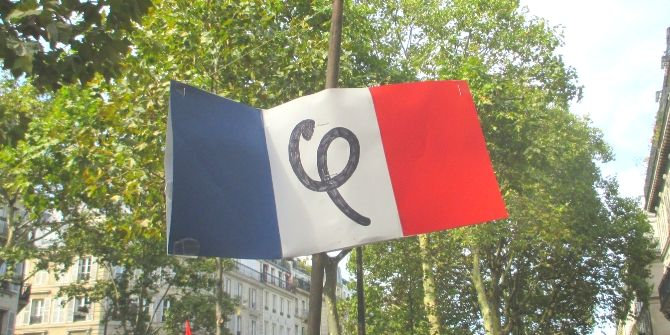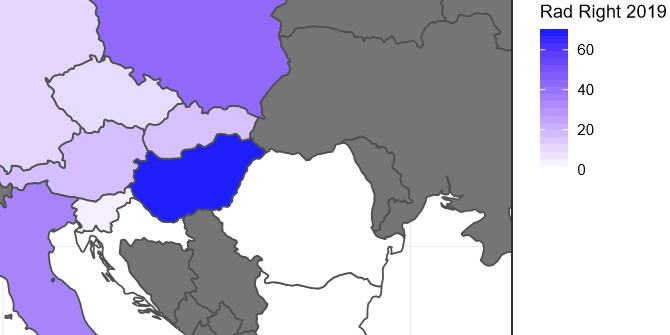 This week a new Italian government was finally sworn in and approved by Italy’s Parliament, following months of uncertainty after the country’s elections in February. James Walston assesses the new cabinet, noting that it is intentionally dominated by low profile figures to avoid antagonising the main participating parties. He argues that the government will be under immediate political pressure and could be further undermined by Silvio Berlusconi’s on-going legal battles.
This week a new Italian government was finally sworn in and approved by Italy’s Parliament, following months of uncertainty after the country’s elections in February. James Walston assesses the new cabinet, noting that it is intentionally dominated by low profile figures to avoid antagonising the main participating parties. He argues that the government will be under immediate political pressure and could be further undermined by Silvio Berlusconi’s on-going legal battles.
True to his promises, Enrico Letta produced his government in three days, prompting Beppe Grillo to say that it wasn’t Christ who had risen, but Barabbas. The ministers were sworn in on Sunday in chaotic circumstances, with two police officers being shot outside of the Prime Minister’s office. On Monday and Tuesday, the new government gained the necessary votes of confidence from both houses of the Italian Parliament.
It is a low profile cabinet, very intentionally. Letta and Napolitano, the Italian President, knew that any big name from one side would have produced a veto from the other, so apart from Angelino Alfano, Silvio Berlusconi’s designated successor and secretary of his party, the People of Freedom (PdL), none of the new ministers are very marked politically. And apart from Alfano, who has served as Minister of Justice, and Anna Maria Cancellieri, the former functionary who was Monti’s Minister of the Interior, none have ministerial experience.

Some are non-party technocrats, like Fabrizio Saccomanni from the Bank of Italy (Economy) or Enrico Giovannini from the national statistics agency ISTAT (Labour), while others are newly elected deputies from both the PdL and Democratic Party (PD) and Mario Monti’s Civic Choice (SC). The new Foreign Minister, Emma Bonino, is one of the few well-known outside Italy. She has been active in the Radical Party since the 1970s in the civil rights battles and has served as European Commissioner appointed by both centre right and centre left governments. She is respected and disliked equally by centre-right and centre-left.
The other characteristic is that the new cabinet is young (the average age of 53 is eleven years lower than the previous cabinet) and has seven women, two of whom were not born Italian. For generational as much as political reasons, only one (Flavio Zanonato – Economic Development) comes from the Communist Party, but in contrast the majority is largely Catholic and so a throwback to the Christian Democrats. Two (Maurizio Lupi – Infrastructure and Mario Mauro – Defence) are members of the powerful Catholic pressure group, Comunione e Liberazione.
Of the two “new Italians”, one is the PD’s Cécile Kyenge as Minister for Integration. She is an eye surgeon from Emilia Romagna, but is originally from the Democratic Republic of the Congo. She had already proposed a bill which will give citizenship to the children of immigrants resident in Italy and will no doubt push for its approval – and, incidentally, succeed in her motion to have the monument to the war criminal Rodolfo Graziani rededicated to those killed by fascism in Africa. It is interesting that the Northern League’s Matteo Salvini showed the League’s true colours within hours of her appointment by issuing a clearly xenophobic statement. Kyenge is black, but there is another minister who is equally “foreign”: Josefa Idem, an Olympian (five medals in canoeing, four for Italy and the first for Germany plus many others) elected in the PD lists, who took Italian citizenship as an adult and is now Minister for Equal Opportunities. They are two absolute novelties and along with the generational and gender balance changes illustrate how innovative this government might be.
That is the good news. The bad, or much less good, news is that the new government’s success depends on a fragile alliance between the PD and PdL who until last week refused to work together – and the Italian papers have been having a field day running quotes from everyone, including Letta, saying how despicable and impossible the other is. The PD is seriously divided and those splits could well reappear if there are votes on controversial issues, which there will be. On the other side, the PdL is by now more homogeneous, but it would only take another guilty verdict for Berlusconi for him to withdraw PdL support and demand early elections. The Appeal Court verdict on the Mediaset slush fund trial is due at the end of May. A guilty verdict could include Berlusconi being barred from holding public office. This is why he pressed for the key ministries of Justice, Interior and Economy to protect personal and political interests, while also playing the “moderate statesman” because he knows that he can pull the plug whenever he wants (and whenever the opinion polls suggest he will win).
The issues the new government has to face are the same as ever: reform of the electoral law and economic recovery, corruption and the cost of politics. Berlusconi and the PdL have been repeating that they want to abolish the IMU property tax that the Monti government passed last year (which they also voted for) and reimburse last year’s payments. This could be the first stumbling block for the new government, but there are ways of fudging the issue – partial abolition (on houses below a certain value) and partial repayments (in government bonds) – which might allow the government to survive. They all agree on the broad principles of economic recovery and an end to austerity, but it will take all of Letta’s negotiating skills to work out the details.
The agreement leaves Beppe Grillo’s Five Star Movement (M5S) as the main opposition and so probably with the chairs of the key parliamentary oversight committees on the state broadcaster, the RAI, and secret services. If the government fails to deliver, and the M5S holds together, Grillo will ride high in the polls. If the government holds together and addresses the economic issues, then his future is less rosy. The same principle applies to Matteo Renzi, mayor of Florence and potential new PD leader. If Letta succeeds, Renzi’s chances decrease. If not, then the PD is likely to split and Renzi will lead the centrist section. For the moment, though, Renzi does not have to stick his neck out.
And for the moment, like the spring weather, the sun is shining, but the outlook is far from steady.
This article is based on an earlier piece at James Walston’s blog Italian Politics with Walston.
Please read our comments policy before commenting.
Note: This article gives the views of the author, and not the position of EUROPP – European Politics and Policy, nor of the London School of Economics.
Shortened URL for this post: http://bit.ly/11Vq9Rg
_________________________________
About the author
 James Walston – American University of Rome
James Walston – American University of Rome
James Walston is Professor of International Relations at the American University of Rome. His primary research interests are Italian politics and modern history.





1 Comments